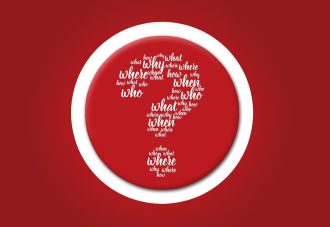Crowdfunding, sponsors, patrons, philanthropists, fundraising, budget funding, partnerships, networking – how to find and attract resources for NGOs, their projects and activities? Why should these pathways diversify grants? At the same time, how do we strengthen the grant success of grassroots organizations? On January 20, participants in the Legal Reform Platform for CSOs, consisting of more than a hundred NGOs and charitable organizations working to strengthen civil society and democracy at various levels, discussed this at a training on the logic of project applications.
“As a person engaged in grant writing in our organization, I try to attend all available events on this issue. Knowing the level of organizers, I predicted that participation in the webinar would be useful, and I would learn something new that I can apply in my work. But I did not expect that the event would be so interesting, dynamic and friendly, I got very positive impression, so I look forward to the next meetings,” says Hanna Kotenko, Executive Director of Charitable Organization “Network of 100 percent of life Rivne”.
The training reminded the participants that the project:
- Is a means / tool for change (changes);
- Has a clearly defined beginning and end;
- Has a specific objective (goals);
- Leads to real and measurable results;
- Stipulates or requires the expenses and other resources (including knowledge and time).
“Participation in the seminar allowed me to deepen my knowledge of project and grant management. The seminar contains both basic things and specific brainstorm activities and exercises. And most importantly – I both met my reliable partners and made new contacts. The meeting was important for the networking of my organization,” said Roman Nekoliak, Center for Civil Liberties.
We advised studying donors outside their announcements, for example:
- Look at the practice – who and how was supported in previous periods (in reports and archives);
- Look for media activities of grantees for the past periods, look through public reports of such NGOs and charitable organizations;
- Study areas of support and restrictions;
- Study the format of submission of applications, the structure and features of the application form;
- Learn or specify terms for the submission of applications and decision-making;
- Collect and analyze ‘subjective information’ (experience of grantees);
- Go to donor fairs, but don’t ask them ‘now I’ll tell you about my project and you’ll tell me what you think about it’.
“Training on advanced project management and grant writing is a very valuable initiative, as it is through such activities that we can feel the Consortium’s coherence and concern for the Ukraine Civil Society Sectoral Support Activity on the Legal Reform Platform for CSOs. Despite the constant relevance of the topic of fundraising, the urgent need to work with it arises at a time of pandemic, when NGOs are redistributing their costs and looking for new sources of funding. We hope that the knowledge gained will help everyone present at the webinar to implement activities and initiatives to implement the Legal Reform Roadmap,” added Alona Bereza, Women’s Anti-Corruption Movement.
In order to enhance the disclosure of the problem or the relevance of the project, we advise using sources – this is one of the ways to strengthen the application. what can these include?
- Official reports of analytical institutions and public authorities;
- Statistical information;
- Results of sociological research;
- Publications in authoritative media;
- Scientific research results;
- Reports of international organizations and NGOs.
Also use applied methods of problem solving:
- 5 Whys;
- Problem tree (objective tree);
- Ishikawa diagram;
- Lotus Blossom (64 ideas to solve the problem);
- Kipling method (5W1H);
The educational event was held as part of the Project Ukraine Civil Society Sectoral Support Activity implemented by the Initiative Center to Support Social Action “Ednannia” in partnership with the Ukrainian Center for Independent Political Research (UCIPR) and Centre for Democracy and Rule of Law (CEDEM) with the sincere support of the American people through United States Agency for International Development.



